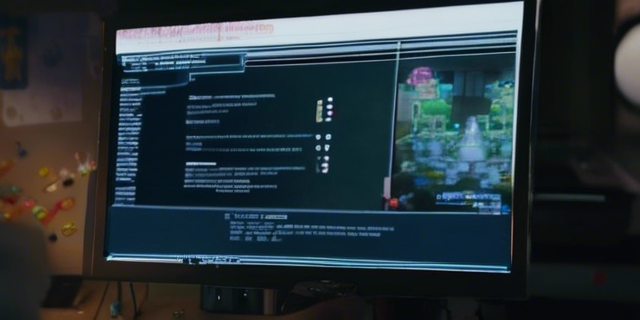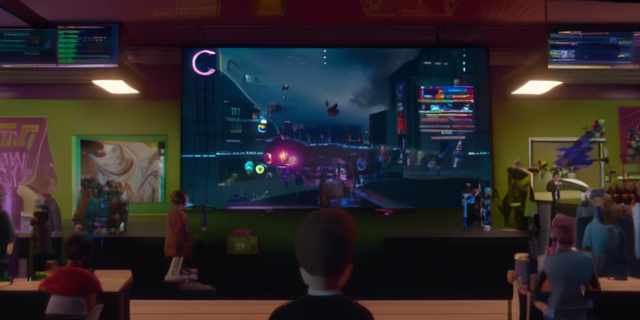Launching a video game is a complex and multifaceted endeavor. Beyond the development phase, getting the game into the hands of players and ensuring it captures their interest requires strategic efforts. Among the most critical aspects of this process is Public Relations (PR). For game developers, PR is not just about sending out press releases; it’s about crafting a narrative, building relationships, and ensuring that your game gets the attention it deserves.
PR in game launches is vital for creating buzz, securing media coverage, and establishing a strong connection with your target audience. A strategic PR campaign can be the driving force behind a successful game launch, ensuring that your game stands out from the crowd.
Why PR is Essential in Game Launches
- Creating Buzz and Anticipation
Before a game is released, building anticipation is crucial. PR in game launches plays a pivotal role in generating excitement and curiosity. A well-planned PR campaign can create a sense of urgency and anticipation among players, which is vital for a successful launch. Whether it’s through teasers, exclusive previews, or announcements on social media, PR helps to create a narrative that hooks potential players long before they can get their hands on the game.
- Connecting with the Right Audience
PR helps in targeting the right audience for your game. By understanding who the game is for—whether it’s hardcore gamers, casual players, or niche communities—PR efforts can be tailored to reach those specific groups. This targeting ensures that the game’s message resonates with those most likely to be interested in it. For instance, reaching out to gaming media that cater to specific genres or audiences ensures that the game is showcased to the right people.
- Generating Media Coverage
Media coverage is one of the most powerful tools in a game’s PR strategy. Getting the game featured on popular gaming websites, blogs, or YouTube channels can significantly boost its visibility, especially when you successfully localise content according to target markets. Coverage from respected gaming media outlets lends credibility to the game and can drive interest from a wider audience. A strong PR campaign ensures that key journalists and influencers are aware of the game, understand its unique selling points, and are motivated to share it with their followers.
- Building and Maintaining Relationships
The success of a game PR campaign often hinges on relationships with gaming media, influencers, and even the gaming community itself. PR is about more than just one-off press releases; it involves ongoing engagement. By fostering good relationships with journalists and influencers, developers can secure coverage not just for one game, but for future titles as well. Consistent and transparent communication helps in building trust, making it easier to secure media placements and positive reviews.
- Handling Crises and Managing Public Perception
Not all game launches go smoothly. Bugs, server issues, or negative feedback can pose significant challenges. Effective PR strategies are essential for managing these situations. By having a crisis communication plan in place, developers can quickly address issues, control the narrative, and mitigate any potential damage to the game’s reputation. Transparent communication and timely responses are key to maintaining trust with players and the media alike.

Key PR Strategies for a Successful Game Launch
- Start Early
Timing is critical in PR. The earlier you start, the better. Building buzz takes time, and starting your PR efforts well before the game’s launch gives you the runway needed to generate interest. This could include announcing the game, releasing teasers, and engaging with the community. Early engagement also allows for feedback that can be invaluable in the final stages of development.
- Develop a Compelling Story
Every game has a story, not just within its gameplay but also in its creation and the experience it offers. Crafting a compelling narrative around the game helps it stand out in a crowded market. This story should be communicated consistently across all PR materials—press releases, interviews, social media posts, and more. Whether it’s the inspiration behind the game, the challenges overcome during development, or the unique features that set it apart, the story is what will capture the media’s and the public’s attention.
Leverage Influencers and Content Creators
In today’s digital landscape, influencers and content creators play a significant role in game marketing. Collaborating with influencers who have a strong presence in the gaming community can amplify your game’s reach. These influencers can provide authentic reviews, gameplay videos, and social media posts that resonate with their followers. Selecting influencers who align with the game’s target audience ensures that the promotion feels organic and reaches the right players.
- Create High-Quality Press Materials
Journalists and content creators are more likely to cover a game if they have access to high-quality press materials. This includes a well-crafted press release, high-resolution images, trailers, and gameplay videos. Providing a comprehensive press kit makes it easier for media outlets to feature the game and ensures that the coverage is accurate and visually appealing.
- Engage with the Gaming Community
The gaming community is a powerful ally in any PR campaign. Engaging with the community through forums, social media, and events can generate grassroots support for the game. Listening to feedback, participating in discussions, and showing appreciation for the community’s support can turn players into advocates who will spread the word about the game.
- Monitor and Measure Success
After the game launch, it’s important to monitor the results of your PR efforts. Track media coverage, social media mentions, and player feedback to gauge the campaign’s success. Analysing what worked and what didn’t provides valuable insights that can inform future PR strategies. This ongoing analysis helps in refining the approach for post-launch promotions and future game releases.

The Long-Term Impact of PR on Your Game
While the initial launch period is critical, PR doesn't stop once the game is released. A continuous PR effort can keep your game in the public eye, whether through updates, DLC releases, or community events. Long-term PR strategies help sustain the game's momentum and expand its reach. Game publicity over the long term can keep your game relevant in a market where new titles are constantly emerging.
- Sustaining Interest Post-Launch
Even after the initial buzz has faded, PR efforts can keep your game alive. Post-launch content updates, new features, or expansions provide opportunities for renewed media coverage. Regular communication with your player base through social media, newsletters, and forums can also keep them engaged. PR strategies that focus on sustaining interest help ensure that your game doesn’t just make a splash at launch, but continues to be played and talked about long after.
- Expanding to New Markets
Once your game has established itself, PR can play a crucial role in expanding its reach to new markets. Whether you're localising the game for different languages or targeting a new platform, PR efforts can introduce your game to new audiences. Successful PR strategies often include plans for expansion, ensuring that your game’s appeal grows over time.
The Impact of PR on Indie Developers
For indie developers, PR can be a game-changer. Without the massive marketing budgets of AAA studios, indie developers must rely on PR to get their games noticed. A well-executed PR campaign can level the playing field, giving indie games the visibility they need to succeed. By focusing on storytelling, building relationships, and engaging with the community, indie developers can generate significant buzz and attract media coverage that might otherwise be out of reach.
- PR Success Stories
Numerous indie games have successfully leveraged PR to achieve outstanding results. Games like Undertale, Hades, and Celeste became household names partly due to their effective PR strategies. These games garnered media attention, influencer support, and strong community engagement, all of which contributed to their success.
Conclusion: The Value of PR in Game Launches
PR in game launches is more than just a one-time effort; it is an ongoing process that can determine the success or failure of a game. From creating awareness and building credibility to engaging with the community and managing post-launch momentum, PR plays a crucial role at every stage of the game's lifecycle. For game developers, especially those with limited marketing resources, a well-executed PR campaign can be a game-changer, ensuring that their hard work pays off in the form of widespread recognition and player engagement.
Whether you’re an indie developer launching your first game or a seasoned studio preparing for your next big release, investing in a comprehensive PR strategy is essential. The right approach to PR in game launches can elevate your game from obscurity to success, making it a memorable and celebrated release in the gaming world.
At The Game Marketer, we understand the unique challenges that come with launching a game in today’s competitive market. Our specialised PR services are designed to help game developers build strong narratives, secure crucial media coverage, and engage with the gaming community effectively. Whether you're an indie developer looking to make a splash or an established studio aiming to amplify your reach, our expert team is here to guide you every step of the way. With a focus on tailored strategies and impactful campaigns, The Game Marketer ensures that your game not only reaches its target audience but leaves a lasting impression.



